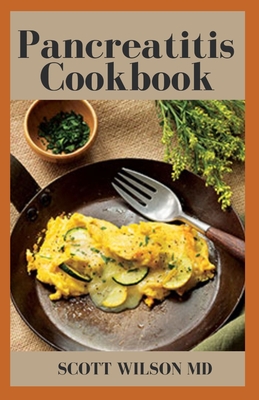Pancreatitis Cookbook: The Ultimate Guide Of Diets For Pancreatitis To Fight Inflammation

Pancreatitis Cookbook: The Ultimate Guide Of Diets For Pancreatitis To Fight Inflammation
Pancreatitis is inflammation of the pancreas and may be acute or chronic. Acute pancreatitis is acute inflammation of the pancreas and a common cause of acute abdominal pain causing hospitalisation. In the majority of patients, the illness settles over a few days but in 25% of cases it is more severe and associated with organ failure or pancreatic necrosis, requiring critical care and a prolonged hospital stay. The incidence in the UK is approximately 56 cases per 100,000 people per year and the overall mortality rate around 5%. In some cases acute pancreatitis may progress to chronic pancreatitis, particularly after recurrent attacks. Chronic pancreatitis is an inflammatory process of the pancreas that results in fibrosis, cyst formation and stricturing of the pancreatic duct. It usually presents with chronic abdominal pain but the clinical course is variable. The annual incidence in Western Europe is about 5 new cases per 100,000 people, although this is probably an underestimate. Most people with chronic pancreatitis have had 1 or more attacks of acute pancreatitis. In others, chronic pancreatitis has a more insidious onset and delay in diagnosis is common.In the UK approximately 50% of cases of acute pancreatitis are caused by gallstones, 25% by alcohol and 25% by other factors. Alcohol is responsible for 70-80% of cases of chronic pancreatitis and cigarette smoking is strongly associated with chronic pancreatitis; and is thought to exacerbate the condition. Acute and chronic pancreatitis may be idiopathic or, in about 5% of cases, caused by hereditary factors (in these cases there is usually a positive family history). Other causes include hypercalcaemia, hyperlipidaemia or autoimmune disease. In acute and chronic pancreatitis identifying the cause may not be straightforward and specialist investigations may be necessary. Management of acute pancreatitis in the early stages is supportive. Intravenous fluid replacement has an important role but the type and rate of administration of the fluid is unclear. The role of antibiotics in preventing infection is hotly debated. It is recognised that patients who develop infected pancreatic necrosis should undergo a form of drainage or necrosectomy to treat this but the type of intervention for each patient is unclear. Indications for referral to a specialist pancreatic centre are variable and require clarification.
PRP: 92.92 Lei
Acesta este Prețul Recomandat de Producător. Prețul de vânzare al produsului este afișat mai jos.
83.63Lei
83.63Lei
92.92 LeiLivrare in 2-4 saptamani
Descrierea produsului
Pancreatitis is inflammation of the pancreas and may be acute or chronic. Acute pancreatitis is acute inflammation of the pancreas and a common cause of acute abdominal pain causing hospitalisation. In the majority of patients, the illness settles over a few days but in 25% of cases it is more severe and associated with organ failure or pancreatic necrosis, requiring critical care and a prolonged hospital stay. The incidence in the UK is approximately 56 cases per 100,000 people per year and the overall mortality rate around 5%. In some cases acute pancreatitis may progress to chronic pancreatitis, particularly after recurrent attacks. Chronic pancreatitis is an inflammatory process of the pancreas that results in fibrosis, cyst formation and stricturing of the pancreatic duct. It usually presents with chronic abdominal pain but the clinical course is variable. The annual incidence in Western Europe is about 5 new cases per 100,000 people, although this is probably an underestimate. Most people with chronic pancreatitis have had 1 or more attacks of acute pancreatitis. In others, chronic pancreatitis has a more insidious onset and delay in diagnosis is common.In the UK approximately 50% of cases of acute pancreatitis are caused by gallstones, 25% by alcohol and 25% by other factors. Alcohol is responsible for 70-80% of cases of chronic pancreatitis and cigarette smoking is strongly associated with chronic pancreatitis; and is thought to exacerbate the condition. Acute and chronic pancreatitis may be idiopathic or, in about 5% of cases, caused by hereditary factors (in these cases there is usually a positive family history). Other causes include hypercalcaemia, hyperlipidaemia or autoimmune disease. In acute and chronic pancreatitis identifying the cause may not be straightforward and specialist investigations may be necessary. Management of acute pancreatitis in the early stages is supportive. Intravenous fluid replacement has an important role but the type and rate of administration of the fluid is unclear. The role of antibiotics in preventing infection is hotly debated. It is recognised that patients who develop infected pancreatic necrosis should undergo a form of drainage or necrosectomy to treat this but the type of intervention for each patient is unclear. Indications for referral to a specialist pancreatic centre are variable and require clarification.
Detaliile produsului









